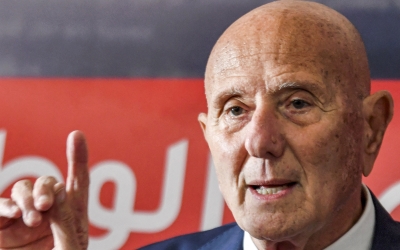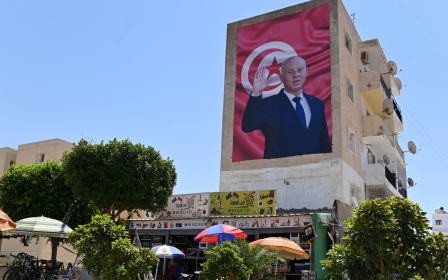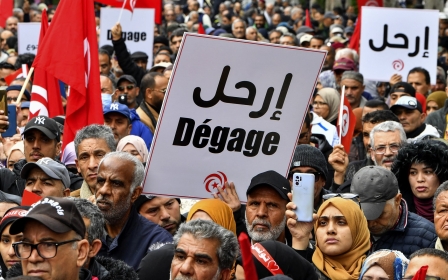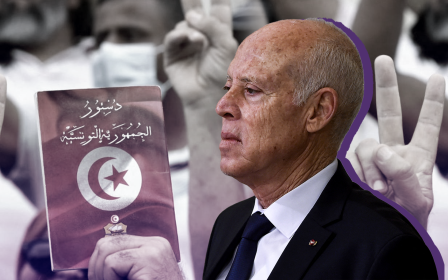Tunisia: Judge threatens to detain Ghannouchi amid wave of arrests
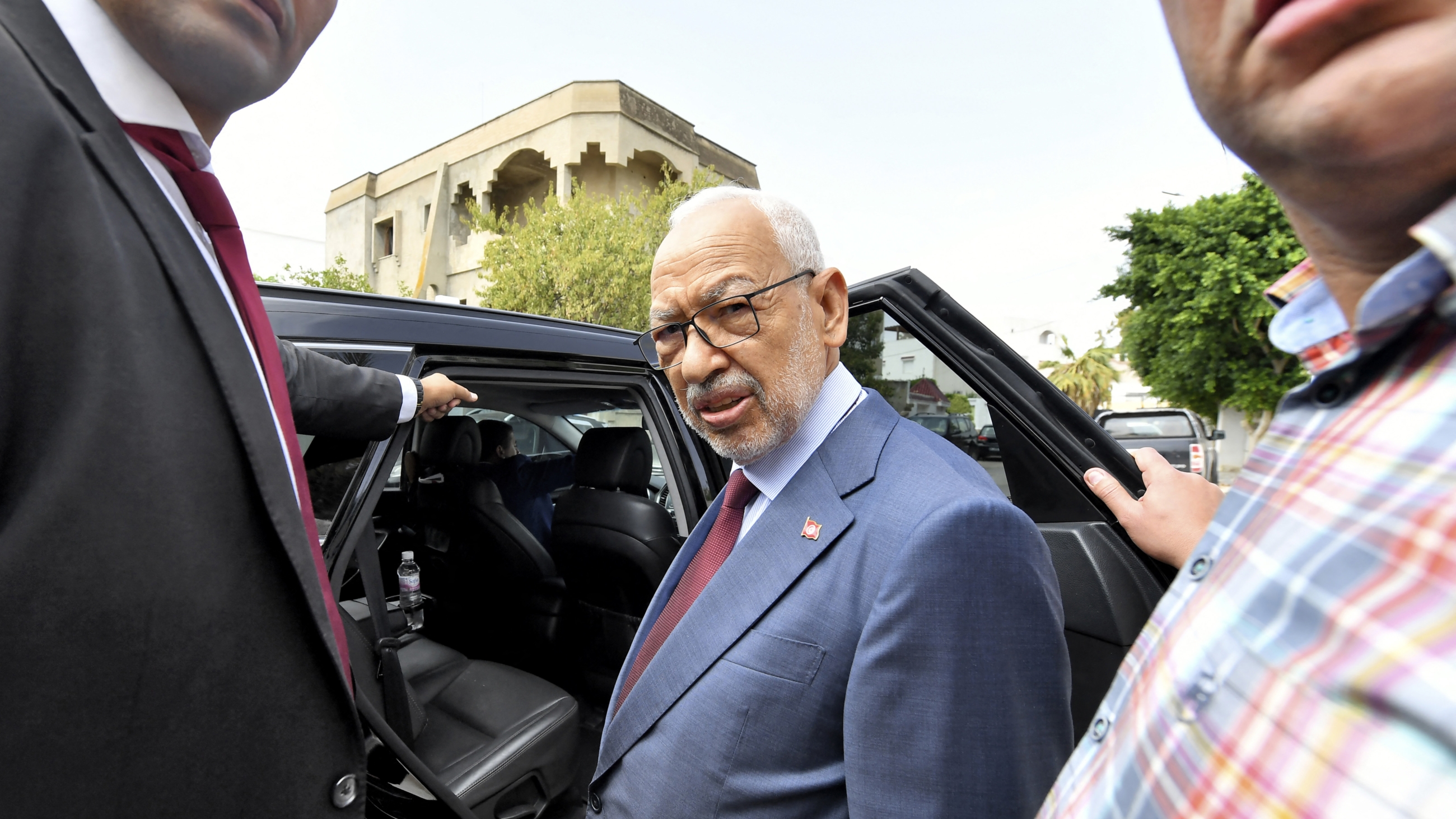
A Tunisian judge threatened to arrest opposition leader Rached Ghannouchi if he failed to appear in court next week, his office told Middle East Eye.
Ghannouchi, Ennahda party leader and former speaker of parliament, was summoned to a hearing on 14 February but couldn't attend due to health reasons.
A judge at the counter-terrorism prosecutor office in the capital, Tunis, postponed the hearing to Tuesday at the request of Ghannouchi's representatives.
However, he said that if the 81-year-old veteran politician failed to show up next week for whatever reason, a warrant for his arrest would be issued, Ghannouchi's representatives said.
'In view of the recent wave of arrests of opposition leaders, journalists and trade unionists, we are concerned that Mr Ghannouchi would be detained under Saied's orders'
- Rached Ghannouchi's office
In the unusual presence of a high number of police officers in court, the judge was heard saying on the phone afterwards: "The arrest has not been made, sir," according to a source with knowledge of the hearing.
New MEE newsletter: Jerusalem Dispatch
Sign up to get the latest insights and analysis on Israel-Palestine, alongside Turkey Unpacked and other MEE newsletters
The incident took place as authorities detained at least 10 prominent opponents of President Kais Saied last week in the latest wave of arrests.
"This is the seventh time over the last few months that Mr Ghannouchi has been summoned by Kais Saied's judiciary to be questioned on spurious, fabricated charges," Ghannouchi's office told MEE.
"In view of the recent wave of arrests of opposition leaders, journalists and trade unionists, we are concerned that Mr Ghannouchi would be detained under Saied’s orders."
The Tunisian Ministry of Justice had not responded to MEE's request for comment at the time of publication.
Tunisia has been engulfed in political and economic crises since Saied unilaterally suspended parliament and dissolved the government in 2021, in what many branded a "constitutional coup".
He subsequently ruled by decree, before pushing through a new constitution that enshrined his one-man rule.
Opponents targeted
Ghannouchi, a fierce critic of Saied's power grab, has since been embroiled in investigations on money laundering and incitement to violence that critics say are politically motivated.
Last year, a travel ban was issued against him, and his Tunisian bank accounts and those of several relatives and members of his party have been frozen.
He appeared in court for questioning in July and November, and members of Ennahda have been arrested as part of the ongoing investigations.
Ennahdha denies all the charges against its members.
Ghannouchi previously called the trials an "invented problem" by authorities "aimed at distracting the Tunisian people from the real problems we're facing".
Last week, the authorities detained senior Ennahda leaders Noureddine Bhiri and Faouzi Kamoun among other opponents of Saied. They also arrested the head of a popular independent radio station, two judges, a senior official with the powerful Tunisian General Labour Union (UGTT) and a controversial businessman.
The arrests have raised concerns about a wider crackdown on dissent and prompted calls from the opposition, activists and the UN Human Rights Office for their immediate release.
Foreign Minister Nabil Ammar said the arrests were related to the country's national security and rejected the accusation that they were political.
Saied called those detained "terrorists who must be held legally accountable".
The UGTT, which initially avoided taking sides following Saied’s power grab, organised a protest on Saturday against the government.
Thousands of demonstrators took to the streets denouncing recent political repression and economic woes suffered under Saied's government, marking an escalation in the union's confrontation with the president.
This article is available in French on Middle East Eye French edition.
Middle East Eye delivers independent and unrivalled coverage and analysis of the Middle East, North Africa and beyond. To learn more about republishing this content and the associated fees, please fill out this form. More about MEE can be found here.


